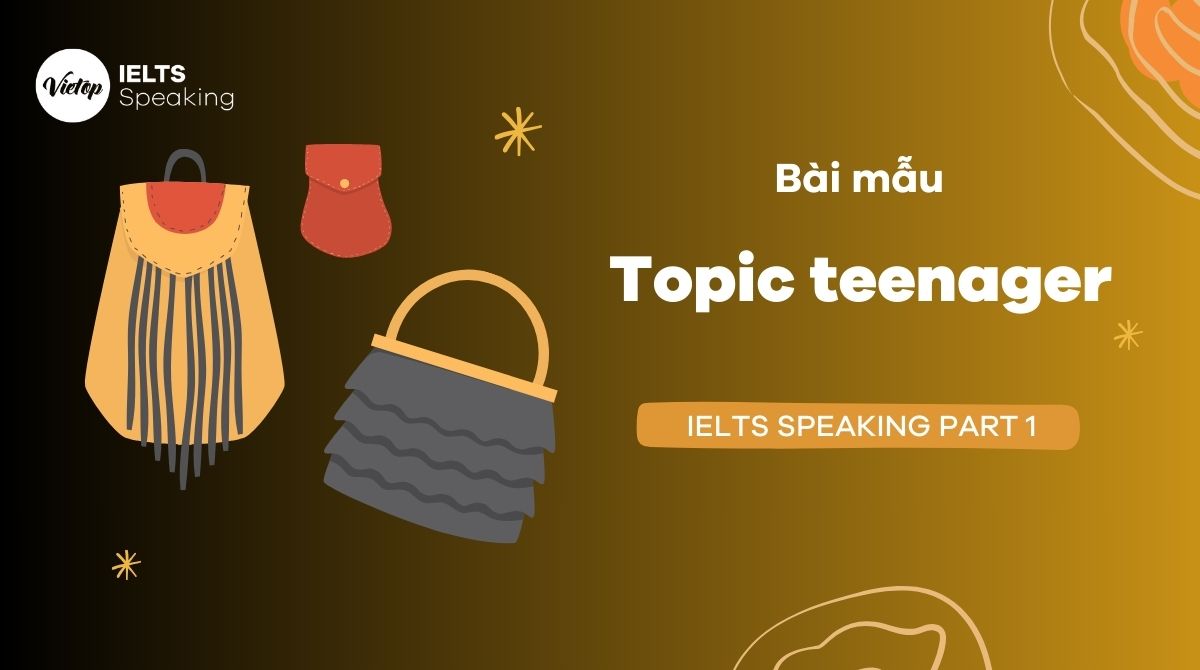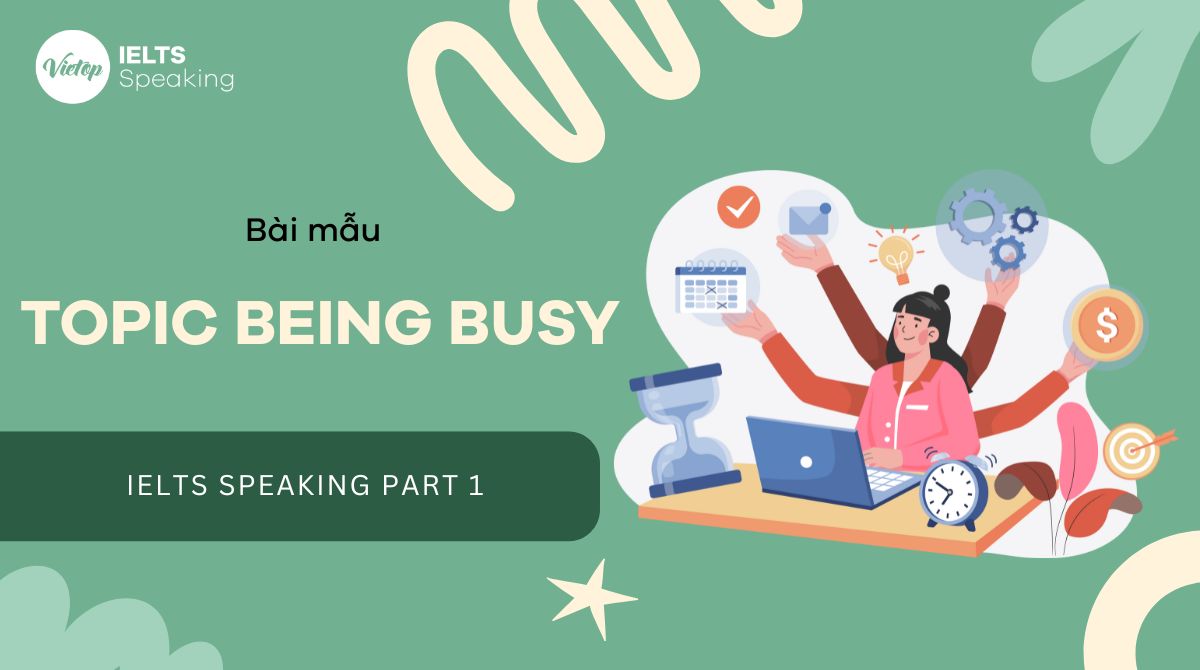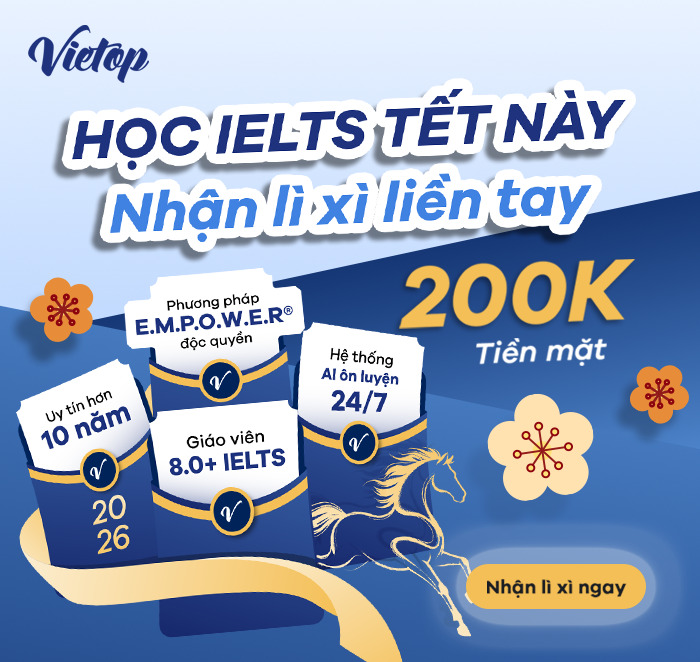Topic Spending Money không phải là một chủ đề quá khó trong phần thi Speaking, tuy nhiên đây là chủ đề khá lạ và mới xuất hiện trong quý 1/2021 này. Cùng xem cách Vietop giải quyết chủ đề này như thế nào nhé!
1. Topic Spending Money – IELTS Speaking part 2
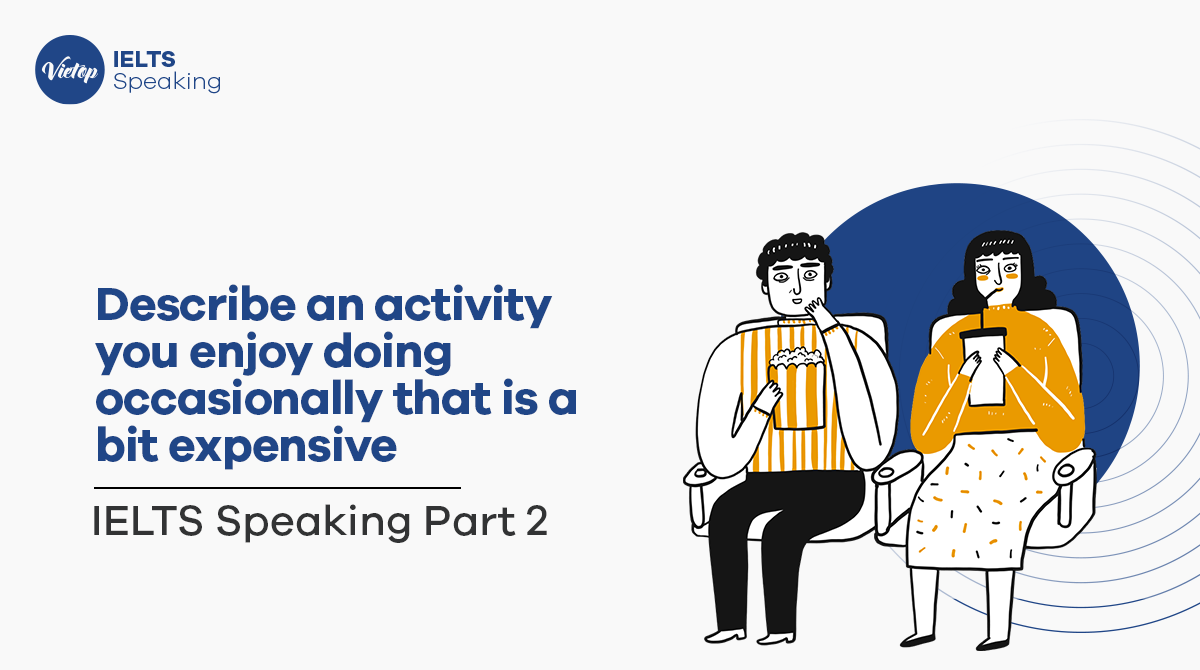
| Describe an activity you enjoy doing occasionally that is a bit expensive You should say: What activity it is When and where you do this Who you do it with Why you enjoy doing it |
File nghe Topic Spending Money – IELTS Speaking part 2 tại đây nhé:
Xem thêm: Khóa học IELTS 1 kèm 1 – Chỉ 1 thầy và 1 trò, cam kết đầu ra
Every now and then, I go to the cinemas to watch movies and it’s my favorite recreational activity. As a university student, I’m eligible for some discount so it doesn’t cost me an arm and a leg to purchase the tickets. However, I still have to take a part time job in order to afford them.
Especially, whenever I feel like going to a fancy high-end cinema where they only play indie and cult classics. On these occasions, I often go on my own since I’m not sure who else might be interested in the likes of “The Rocky Horror Show” or Gene Wilder’s “Willy Wonka and the chocolate factory”.
Other times, though, I usually go with my closest friends and we watch summer blockbusters and newly-released hits. These times, we patronize the popular CGV cinema chain.
The CGV theaters are pretty nice with comfortable seats and the sound quality is actually splendid. Sounds, graphic qualities and seat comfiness are the main criteria that I use when choosing a cinema, since I want to have the fullest movie experience.
I think the movies are marvelous gifts from everyone that involves making them. For me, movies are lenses through which I can catch glimpses of other cultures or get in touch with my very own.
I can see the reconstruction of the past as well as people’s ideas of what the future may look like. They stimulate my curiosity and motivate me to study and work hard so that I feel deserved when I treat myself to a movie every weekend.
Vocabulary:
- Every now and then (expression): thỉnh thoảng, đôi khi. Đồng nghĩa: Occasionally, From time to time
- Recreational (adj): mang tính chất giải trí
- Cost someone an arm and a leg (expression): gây viêm màng túi
- High-end (adj): sang chảnh, hạng sang
- Blockbuster (n): Phim bom tấn
- Patronize (v): thường lui tới, làm khách tại cửa hàng nào đó
- Confiness (n): sự thoải mái
- Lens (n): thấu kính, (nghĩa bóng) lăng kính để nhìn các khía cạnh cuộc sống.
- To catch a glimpse of something/ to catch glimpses of something (expresion): nhìn thoáng qua, nhìn lướt qua.
- Stimulate (v): kích thích (ý chỉ tạo ra trí tưởng tượng)
Xem thêm:
- Topic Decoration – IELTS Speaking part 1
- Bài mẫu IELTS Writing sample topic Studying abroad
- Bài mẫu topic Outdoor activities
2. Topic Spending Money – IELTS Speaking part 3
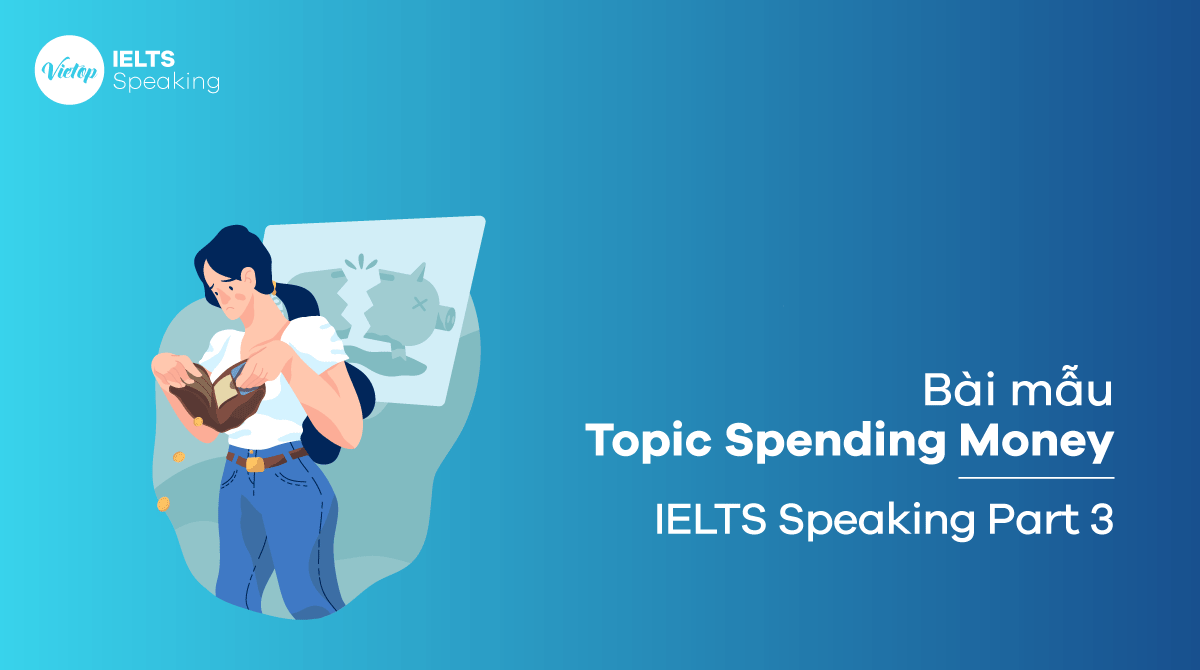
File nghe Topic Spending Money – IELTS Speaking part 3 tại đây nhé:
2.1. What are the advantages and disadvantages of being rich?
When you are wealthy, you are free from the struggle of daily life. That gives you a lot of time to develop yourself artistically and philosophically. In fact, many of the millionaires and billionaires are known to be avid readers and practitioners of art forms such as painting or music. However, being rich isn’t all rosy.
When you’re so well-off that your wealth becomes noticeable. You may come under relentless scrutiny of the public. People may question your spending decisions, whether you have contributed to society through charities or other good deeds. This can be a source of constant pressure.
Vocabulary:
- Avid (adj): say mê. Avid reader: người say mê đọc/ người đọc say mê.
- Well-off (adj): khá giả. Đồng nghĩa: rich, wealthy, well-to-do
- Relentless (n): không ngừng nghỉ
- Scrutiny (n): sự săm soi
- Deed (n): việc làm, hành động
2.2. What is the difference between men and women in buying things?
While I don’t think that there are discernible patterns of men’s and women’s spending habits, I’m acutely aware that there are beliefs regarding this matter embedded in our collective consciousness.
For example, many people believe that when a man buys an item he cares more about the functionality and the quality of the products, whereas when a woman shops she pays more attention to brand names and designs. More generally, it is also believed that men don’t enjoy the shopping experience while women think this is a leisure activity.
Vocabulary:
- Discernible (adj): tách biệt
- Acutely (adv): một cách sâu, thấu đáo.
- To be acutely aware: nhận thức một cách thấu đáo.
- Collective consciousness (expression): nhận thức chung
2.3. Why are some sports expensive and are they for everyone?
Some sports can be extremely costly because of the investment that goes into the equipment, the vehicles or animals that are involved in those activities. Sports such as scuba-diving, sailing and equestrian sports require the practitioners to spend hefty amounts of money to maintain or rent out scuba equipment, sailing boats and horses. Other sports like parachuting and hang-gliding require extensive coaching and aid in the process so a lot of fees must go into hiring coaches and experts.
It is incredibly unfortunate that there exist financial barriers that prevent people with low-income from participating in these activities. I think that as long as they’re passionate about what they’re doing, anyone should be able to play any sports of their choice. I hope this situation will change for the better in the near future.
Vocabulary:
- Equestrian (adj): liên quan đến ngựa
- hefty amounts of money (expression): số tiền lớn
- Parachuting (n): môn nhảy dù
- Hang-gliding (n): môn lượn trên không bằng diều
- Extensive (adj): rộng, nhiều
- People with low-income (expression): người có thu nhập thấp
- Financial barriers (expression): những rào cản kinh tế
2.4. What do you enjoy spending money on?
I enjoy spending money on a few specific things. Firstly, I love traveling because it allows me to explore new places and cultures. Secondly, I like dining out at different restaurants, as it’s a way to experience various cuisines. Additionally, I invest in books and courses for self-improvement, as I value continuous learning and personal growth. Lastly, I occasionally splurge on gadgets and technology that enhance my daily life.
Vocabulary:
- Various cuisines: các món ăn khác nhau
- Self-improvement: tự cải thiện
- Gadgets: dụng cụ
Bạn có bao giờ tự hỏi tại sao lại cần luyện thi IELTS với chủ đề tiêu tiền? Nghe có vẻ đơn giản, nhưng việc trả lời các câu hỏi về thói quen chi tiêu, quản lý tài chính bằng tiếng Anh lại là một thử thách không nhỏ. Khóa ôn thi IELTS của Vietop English sẽ giúp bạn tự tin chia sẻ về quan điểm của mình về tiền bạc, từ đó nâng cao điểm số IELTS Speaking.
Hy vọng bài viết topic Spending Money – IELTS Speaking part 2, 3 sẽ giúp ích cho các bạn. Nhớ lưu lại để lần tới xem tiếp nhé. Vietop English, chúc các bạn học tập, ôn luyện thi IELTS thật tốt.

